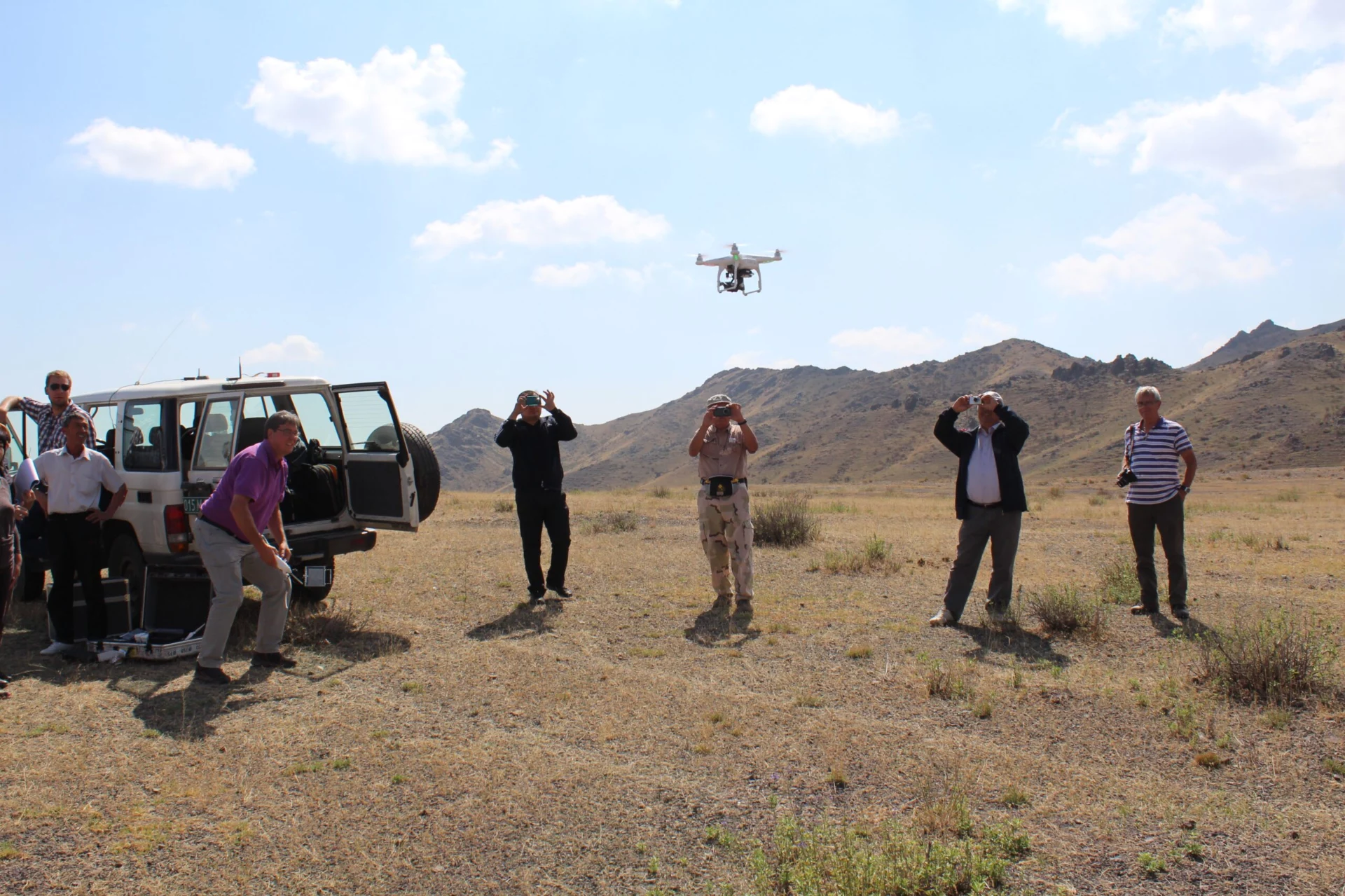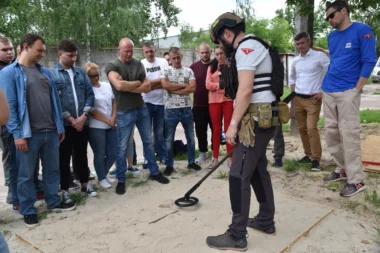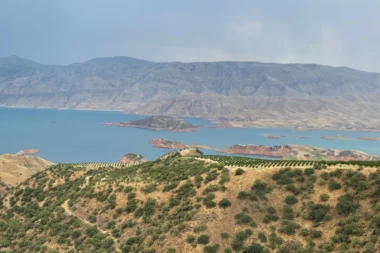Kyrgyzstan

Explosive hazards inherited from past wars
Certain border areas with Uzbekistan and Tajikistan remain contaminated by landmines and other explosive remnants of war — vestiges of past conflicts. These dangers continue to threaten local populations and cross-border exchanges, making it essential to strengthen local capacities to manage and neutralise these threats.
Building local expertise for lasting impact
In partnership with the OSCE, FSD trains and supports Kyrgyz border guards to detect and neutralise explosives, manage obsolete or illegal weapons and ammunition stockpiles, and use detection dogs to identify hazardous devices. These efforts help protect communities from explosive-related accidents while strengthening regional security and stability by preventing the proliferation of weapons.
In the past, FSD has also carried out other projects in Kyrgyzstan, addressing a different kind of contamination: toxic residues left behind by the former uranium mining industry.
For nearly 30 years, FSD has been working to make land safer. Explore the key milestones of our humanitarian work since our first demining operation in 1998.
Latest news from FSD
View all
How to become deminer?
FSD’s deminers come from all walks of life: farmers, teachers, IT specialists and many others. Many have had their lives…
Humanitarian demining Iraq

Tourist destinations still marked by the scars of war
In the world, nearly one in three countries remains contaminated by landmines and explosive remnants of war, particularly across much of South-East…
Landmines and explosive remnants Colombia Iraq Sri Lanka

Beyond demining: preparing to hand over the reins
Faced with this reality, FSD — with the support of Switzerland — is working on two fronts: clearing land today,…
Humanitarian demining Prevention and risk education Ukraine